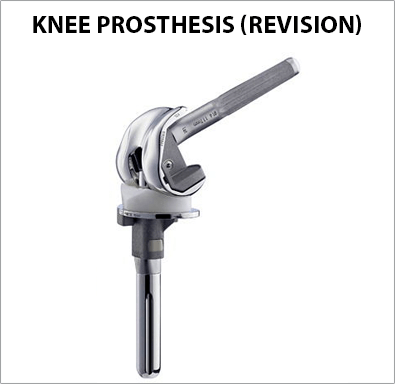

In patients over age 60 years, it is hoped that a total knee replacement will last the lifetime of the patient. Occasionally, implants fail for a variety of reasons such as polyethylene (plastic) wear, loosening, instability or deep infection. A revision total knee replacement often involves removing the implant put in during the first operation, and replacing this with a new total knee device.

Revision total knee replacement is a more difficult and lengthy operation than the initial total knee replacement but can offer extremely good results in terms of pain relief and restoration of function. The chances of an excellent result are slightly lower than those of the primary procedure, but still in the range of 80-90%.
As with any operation, a revision total knee replacement has a number of potential risks. These would include:
A revision total knee replacement usually takes 1.5 to 2 hours to perform. The surgeon must:
The information in the Guide will generally apply to you. However, after a revision total knee replacement, your weight bearing and exercises may be more restricted than with your first replacement. You may require a brace while you are recovering.
